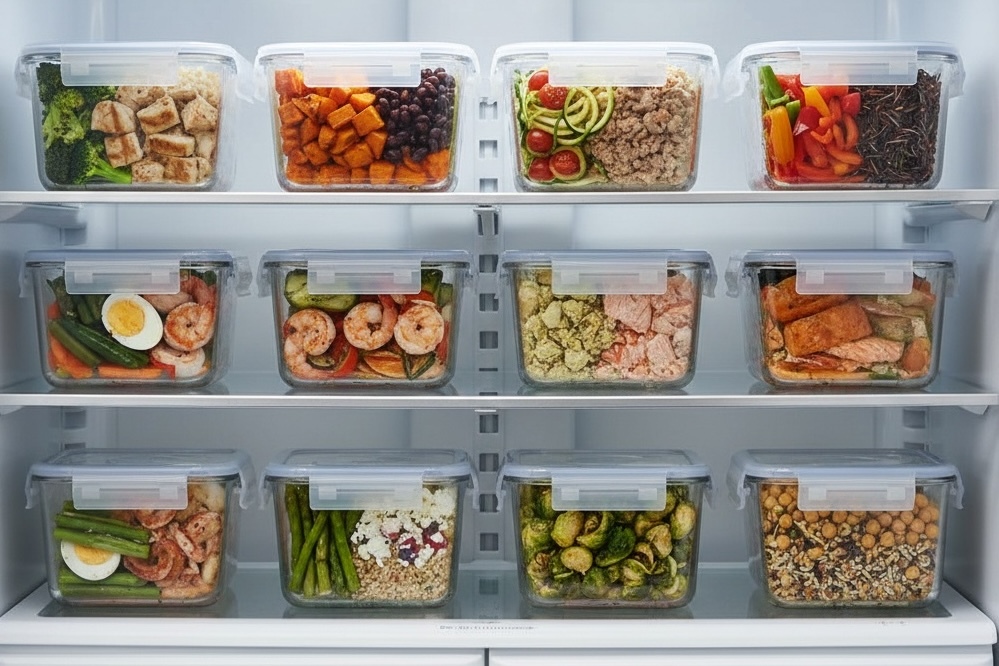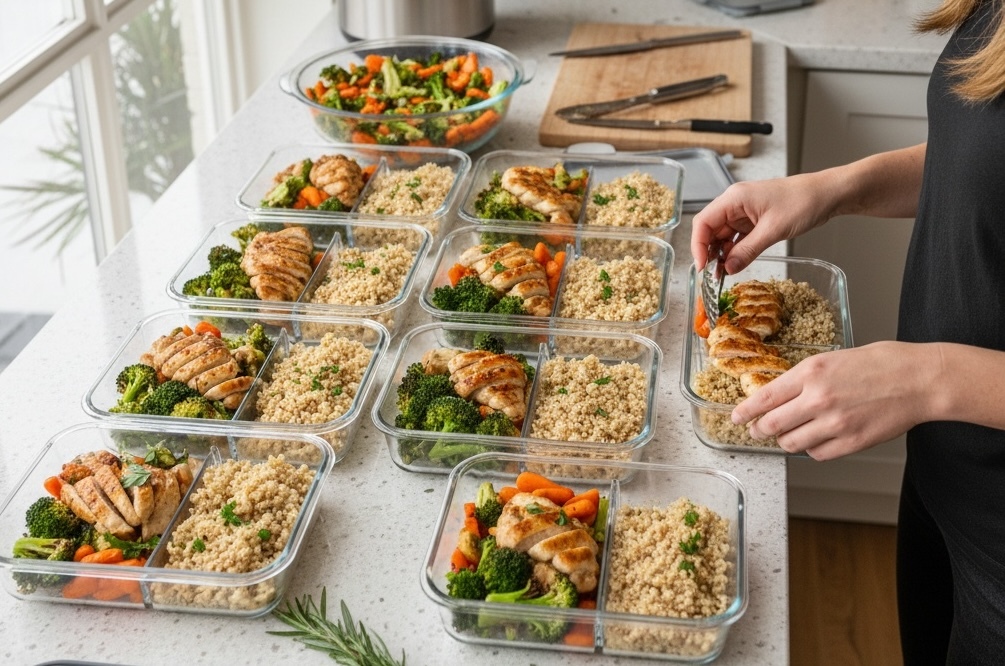How to Meal Prep for a Healthier Lifestyle
Harrison Green
2025-09-05
6 min read

In our fast-paced world, maintaining a healthy diet often feels like an uphill battle against time constraints, convenience foods, and decision fatigue. However, meal prepping has emerged as a powerful strategy that transforms healthy eating from a daily struggle into an organized, sustainable practice. This approach to food preparation not only supports better nutritional choices but also saves time, reduces stress, and can significantly impact your overall well-being.
Understanding the Health Benefits of Meal Prep
Research consistently shows that people who plan their meals in advance make healthier food choices and maintain better dietary patterns. A study published in the International Journal of Behavioral Nutrition and Physical Activity found that individuals who engaged in meal planning had higher diet quality scores and were more likely to have a varied diet rich in fruits, vegetables, and whole grains. Meal prepping naturally leads to portion control, which plays a crucial role in maintaining a healthy weight. When you prepare meals in advance, you're able to measure ingredients accurately and create balanced portions that align with your nutritional needs. This contrasts sharply with restaurant meals or takeout orders, which often contain excessive calories, sodium, and unhealthy fats. The practice also helps stabilize blood sugar levels throughout the day. By preparing balanced meals that include lean proteins, complex carbohydrates, and healthy fats, you avoid the energy crashes that come from grabbing whatever convenient food is available. This steady energy supply supports better concentration, mood stability, and overall physical performance.
Getting Started with Meal Prep
Beginning a meal prep routine doesn't require professional kitchen skills or expensive equipment. Start by choosing one day each week, typically Sunday, to dedicate to meal preparation. This consistency helps establish the habit and ensures you're prepared for the week ahead. Begin with preparing just a few meals rather than attempting to prep every single thing you'll eat during the week. Focus initially on preparing components rather than complete meals. Cook large batches of grains like quinoa or brown rice, roast several types of vegetables, and prepare proteins like grilled chicken or baked tofu. These components can then be mixed and matched throughout the week to create varied meals that don't feel repetitive. Investment in proper storage containers makes a significant difference in your meal prep success. Glass containers with tight-fitting lids maintain food quality better than plastic and can go directly from refrigerator to microwave. Having containers in various sizes allows you to portion foods appropriately and keeps different components separate until you're ready to eat.
Planning for Nutritional Balance
Successful meal prep requires thoughtful planning to ensure nutritional adequacy throughout the week. Aim to include all major food groups in your preparations: lean proteins, whole grains, plenty of vegetables, fruits, and healthy fats. The plate method serves as a helpful visual guide, with half your container filled with vegetables, one quarter with lean protein, and one quarter with whole grains or starchy vegetables. Variety prevents both nutritional deficiencies and taste bud boredom. Plan to use different cooking methods throughout your prep session. While you might roast vegetables one week, consider steaming or grilling them the next. Similarly, seasonings and marinades can transform the same basic ingredients into completely different flavor profiles. Consider your weekly schedule when planning meals. If you know Tuesday will be particularly busy, prepare a meal that requires minimal assembly. On days when you have more time, you might plan something that needs fresh components added to prepped bases. This flexibility ensures your meal prep supports rather than complicates your lifestyle.

Time Management and Efficiency Strategies
Effective meal prep maximizes your time investment through strategic organization. Before beginning your prep session, create a detailed plan that includes your shopping list, prep timeline, and storage strategy. This preparation prevents mid-session grocery runs and helps you work efficiently through your tasks. Batch cooking saves considerable time and energy. While your oven roasts vegetables, you can simultaneously cook grains on the stovetop and prepare proteins in a slow cooker. Using multiple cooking methods at once significantly reduces the total time needed for meal prep. Preparing ingredients rather than complete meals offers more flexibility throughout the week. Wash and chop vegetables, cook proteins, and prepare grains that can be combined in different ways. This approach prevents meal fatigue while still providing the convenience of prepped ingredients.
Overcoming Common Meal Prep Challenges
Many people abandon meal prepping because they become bored eating the same foods repeatedly. Combat this by preparing bases and varying the toppings or seasonings throughout the week. A grain bowl foundation can become Mediterranean one day with olives and feta, Asian-inspired the next with sesame oil and edamame, or Mexican-themed with salsa and avocado. Food safety concerns often worry new meal preppers. Most prepared foods remain safe in the refrigerator for three to four days when stored properly. If you're concerned about food lasting the full week, consider preparing ingredients for the first few days and doing a mid-week mini prep session for the remaining days. Initial time investment can feel overwhelming, but meal prep actually saves time over the course of the week. Consider the minutes spent daily deciding what to eat, preparing individual meals, and cleaning up afterward. A few focused hours of meal prep typically saves several hours throughout the week while supporting better food choices.
Building Long-Term Success
Sustainable meal prep requires flexibility and self-compassion. Some weeks you might prep extensively, while others might involve simple preparations like washing fruit and cooking a large batch of soup. The goal is consistency over perfection, building habits that support your health goals without creating additional stress. Start small and gradually expand your meal prep routine as it becomes more natural. Success with preparing three days' worth of lunches can build confidence to tackle dinners or snacks. This progressive approach prevents overwhelm and allows you to develop systems that work specifically for your lifestyle and preferences. Meal prepping represents an investment in your health that pays dividends in improved nutrition, increased energy, and reduced daily decision-making stress. By approaching meal prep thoughtfully and flexibly, you create a sustainable practice that supports not just healthier eating, but a more organized and intentional approach to nourishing your body. The key lies in starting where you are, using what you have, and building habits that serve your unique needs and goals.



